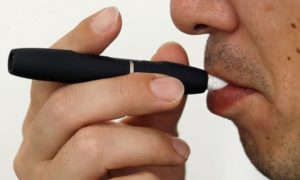You recently saw how a build-up of microbes in bagpipes recently doomed a Scottish man. That could apply to all wind instruments, and a U.S. Food and Drug Administration microbiologist warns that several species of bacteria found in smokeless tobacco products have been associated with opportunistic infections.
Obviously that doesn't mean they caused them but associations are important in making health policy, and alternatives to cigarette smoking, in the interests of harm reduction and smoking cessation, are controversial, with the U.S. government being squarely against them, a legacy of the 'quit or die' mentality that has keep cigarette smoking as (not very) popular that it is.
Bacillus licheniformis and Bacillus pumilus could potentially cause inflammation of the lungs, coauthor Steven Foley, warns in Applied and Environmental Microbiology. A further danger is that several species of Bacillus, as well as some Stapphylococccus epidermidis and Staphylococcus hominis strains can reduce nitrates to nitrites, which can potentially lead to formation of carcinogenic, tobacco-specific N'-nitrosamines within the tobacco products.
Part of the concern over microbial risk from vaping products - or pipes, but this is the government, they are talking about e-cigarettes, stems from the fact that users typically hold these products in their mouths in close contact with mucus membranes, for extended periods of time. So doing provides an opportunity for the user to be exposed to bacteria present in the product.
Other claims in the paper are epidemiologically suspect, claiming that users "often" have problems with gingivitis and other oral health issues and that they are caused by the smokeless tobacco products. It's silly speculation, especially when the public worldwide knows that flossing is a silly notion yet Americans are told we must do it to prevent gingivitis and other health issues, also with no more evidence than a slight association and ignoring confounders.
As many as 8,000,000 people have used vaping devices at least once, but there hasn't been much research on the microbial populations that exist within these products. Probably for good reason, given the slight association promoted here. Perhaps it can create a baseline for further study, but it may not be needed. With the Obama administration effectively banning the products for all but large tobacco and pharmaceutical companies than can afford to submit devices for approval, the industry may be a short-term fad.
Click here to view original web page at www.science20.com






















